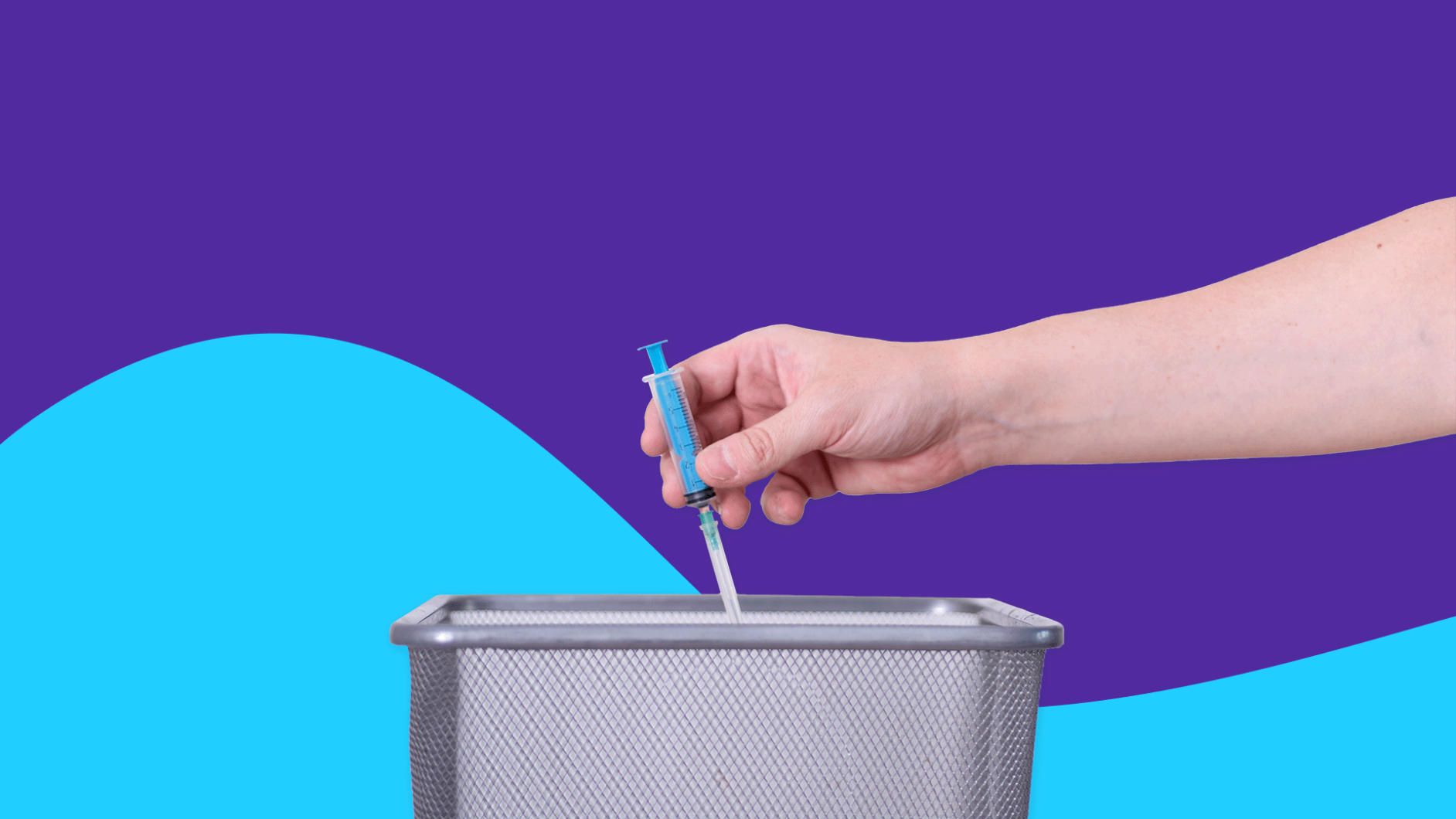Key takeaways
Patients often improperly dispose of medications, posing risks to the environment, animals, and human health, including water contamination and accidental poisoning.
Healthcare providers, especially pharmacists, play a crucial role in educating patients on proper medication disposal methods, including take back programs and safe trash disposal techniques.
Drug take back programs and authorized disposal sites are the preferred methods for disposing of expired or unused medications to prevent abuse and environmental harm.
In the absence of take back programs, patients should mix medications with unpalatable substances before trashing, and only certain high-risk drugs should be flushed as a last resort.
The responsible and safe disposal of medication has become a widespread concern in the United States and across the globe. Patients are often unaware of the proper way to get rid of expired, unused, or old medicines. They might throw prescription bottles into the trash or flush unused drugs down the toilet. This can be a serious concern, especially if the medications are potentially toxic or controlled substances.
Patients may have leftover medications for a number of reasons: They switched to a new drug, the drug expired, or the patient passed away. In other cases, patients may be non-adherent to their medications, forgetting to take them or feeling like they no longer need to take them, which could be another issue.
Healthcare providers often overlook advising patients on how to dispose of their medications. Through proper counseling and guidance, pharmacists can address patient concerns and questions about proper medication disposal.
The risks of improper drug disposal
Disposing drugs improperly can have severe consequences on the environment, animals, and humans. Pharmaceuticals and personal care products (PPCPs) are known to leach into the environment, contaminating the water supply and negatively affecting wildlife. Almost 100 different pharmaceuticals have been found to contaminate rivers, lakes, and wetlands, including antidepressants, antibiotics, and antihypertensives.
Other problems can arise if patients aren’t disposing of medications at all. Storing unused or expired medications can carry a risk of accidental poisoning in children, pets, and loved ones. Diversion is also a concern with storing unused medications. Family members or friends may easily access unused medications, which could lead to an overdose, misuse, or abuse. More than 50% of people who use pain relievers say they obtain them from a family member or friend.
Counseling patients on proper drug disposal
Patients of all ages need guidance for handling expired or unused medications. Patients should be aware of a few key points to dispose of medications properly. Pharmacists and healthcare professionals can counsel patients on the following.
Take back programs
Drug take back programs are one of the best ways that patients can get rid of old medications. Patients can drop off medications at permanent collection sites or periodic take back events. The U.S. Drug Enforcement Administration (DEA) has authorized certain facilities to dispose of medications from the public safely. These facilities include hospitals, clinics, pharmacies, and law enforcement offices. The DEA also organizes specific events on certain days of the year when people can drop off expired or unused medications at designated locations in their communities. At these events, patients can dispose of their medications in a bin or mail them back.
Mix and discard medicine in the trash
If patients are unable to drop off their unused medications at a collection site, there are ways to discard medicines in the trash safely. First, patients should read the labels on the prescription bottles for any specific instructions on disposing of the medication. If no specific instructions are available, advise patients to mix their medications with an unpleasant, concealing substance such as dirt, coffee grounds, or cat litter. Instruct patients not to crush or break tablets or capsules.
After mixing the medication with something undesirable, the patient can safely dispose of the mixture. It’s also a good idea to remind patients to remove or block out any personal or identifying information on the prescription container before throwing it away or recycling it.
Flush only certain drugs
Some patients may have a tendency to flush all of their unused medications. However, only certain drugs and medicines should be flushed down the toilet to prevent potential negative impacts on the environment. For some medications, the risk of harm to human health outweighs the potential environmental effects. Opioids, in particular, carry a high risk of abuse and can even be fatal after a sizable dose. The FDA has released a flush list that includes the following medications:
- Buprenorphine
- Fentanyl
- Hydromorphone
- Hydrocodone
- Meperidine
- Methadone
- Morphine
- Oxycodone
- Oxymorphone
- Tapentadol
- Diazepam
- Methylphenidate
Medications should only be flushed if a take back program is not available in the patient’s local area. Flushing medications is not usually the first choice.
Contact a local pharmacy or recycling facility
Patients can contact you or their local pharmacy, for any questions they have about disposing of medications. Some pharmacies may have a medication drop box to dispose of unused or expired medications. Patients can also contact their local waste management or recycling facility to see if they will accept medications or household hazardous substances.
Educate patients on proper medication use
Properly disposing of medications can often start with counseling patients on how to take their medications correctly. Patients should be counseled to take their medications at the prescribed dosage and duration as directed by their healthcare provider. They should avoid stopping their medication without speaking to a healthcare provider first, even if they no longer feel symptoms. For example, some patients might not finish a course of antibiotics because they start to feel better, leading to leftover medication or an increased risk of antibiotic resistance. Encourage patients to reach out if they experience unpleasant adverse effects that could lead to the discontinuation of the drug.



